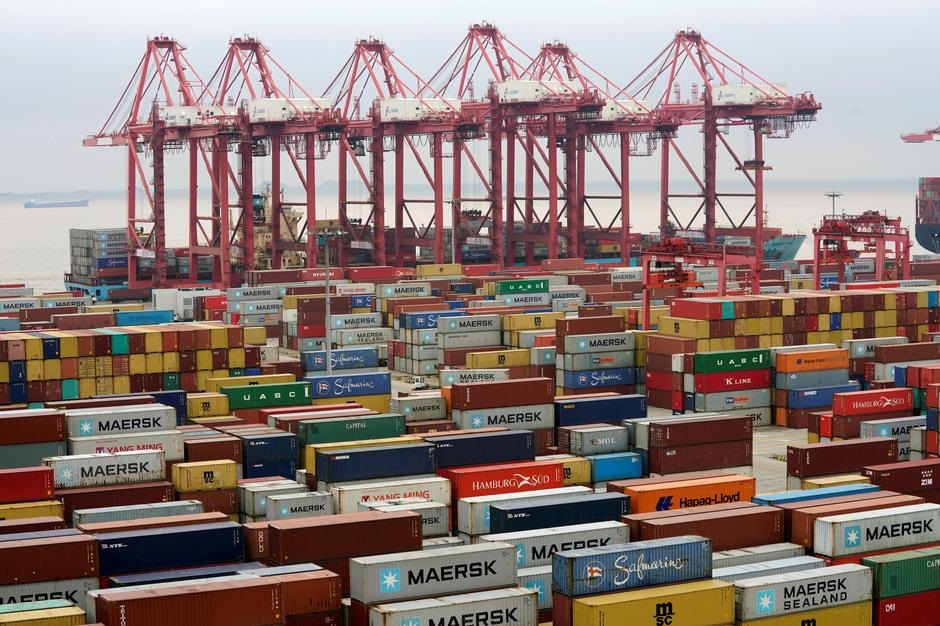The U.S.-China trade war is going to affect all the world, especially trading nations. The fact is that these accumulating tensions would be a boon or bane for ASEAN countries which come into the spotlight as businesses are looking for their way out of the dilemma.
The International Monetary Fund (IMF) cuts its global growth forecast for 2019 to 3.5 percent from 3.7 percent.
IMF Managing Director Christine Lagarde announced at World Economic Forum in Davos, Switzerland, that the revision was made with the high level of accelerating economic risks being taken into account.
These tensions are ranging from the U.S.-China trade war, Brexit to China’s slowing economy.
However, the situation is not a complete loss for every nation considering some may gain benefits from the flow of relocating investment.
Speaking of that, Southeast Asian countries should be poised to absorb the investment.
Substitute effects
On the sidelines of a breakfast meeting in Ho Chi Minh City on January 21, Malaysia’s former Secretary General of the Ministry of Trade and Industry, Datuk Seri J Jayasiri told Tuoi Tre News that U.S. and Chinese businesses and those manufacturing in China in the past are seeking “suitable alternative sources for products that are hindered by the tariffs.”
“There are many of these products in some of the commodity base areas,” he said.
A case in point is soybean. When China imposed new tariffs on American soybean imports, that was expected to reduce the supply of edible oil to China.
Noting that China was Malaysia’s largest palm oil importer after India, this country had an opportunity to supply edible oil to China, according to Norazman Ayob, the deputy secretary-general of Malaysia’s international trade and industry ministry (Miti).
Jayasiri called this the “substitute effects.”
Moreover, he said ASEAN countries might gain benefits in investment.
If the trade war is going to prolong, there will be a lot of investors in either China or the U.S., who do not like it, “want to move out and move to a safer destination and produce,” he predicted.
“This is where ASEAN can draw these investors into the bloc. There are some, I think, multinationals are already thinking of moving out of these countries,” Jayasiri said.
“In fact, maybe the trade war will accelerate the relocation of these investments, because there are reports that, in China, land and labor prices are already going up. So for investors, I think they are moving out.”
Patrick Tay, an economic and policy partner of PricewaterhouseCoopers, told Tuoi Tre News that legal firms, professional service providers, as well as inbound foreign investment advisors will benefit.
Bane in long term
While all the experts above agreed the trade war would be beneficial to ASEAN and some other countries in the short and medium term, they warned that its negative effects would be great in the long run.
Jayasiri was cautious about the probability that businesses might postpone their investments due to rising uncertainty caused by trade tensions.
This means no new trade and economic activities, which will result in a big gap in economic development, he argued.
Tay shared the same viewpoint as he named uncertainty as a factor leading to “slightly lower investment in both Malaysia and Vietnam.”
“Speaking of challenges, the trade war will lead to a loss of confidence, create uncertainty, so then the people’ll have a question regarding where they want to invest,” he said.
“If there are more uncertainties, even if people think it is a good idea to invest, they will pause and think. Some of them may say ‘I’ll wait for one year, I’ll wait for two years.’”
Even if the investment relocation does happen, Vietnam and other ASEAN countries need to be aware of the possibility of U.S. investigation into products’ origin.
Jayasiri claimed that the real issue is Chinese companies relocate to Vietnam and think of selling to the U.S.
Even though right now there is no tariff imposed on Vietnam’s exports to the U.S., he was sure the U.S. will monitor the situation.
“The role of origin is very important. If the U.S. finds that products exported from Vietnam or any other ASEAN country do not originate from those ASEAN countries, but they are mainly sourced from China, then probably the U.S. will take some tariff measures,” he said.
“The U.S. wouldn’t want to see companies circumventing its tariff imposition on China.”
But there are high hopes that the trade war truce would hold and continue.
According to Tay’s personal analysis, some of the issues have too big differences so that might be quite hard to come about.
“I think there is maybe a 60% chance that the trade war will continue. Then, the consequences on Malaysia and Vietnam are, in the short term if it continues, that we will have more divergent activities, but that is going to be balanced by uncertainty reducing investment,” he concluded.
Like us on Facebook or follow us on Twitter to get the latest news about Vietnam!




















































